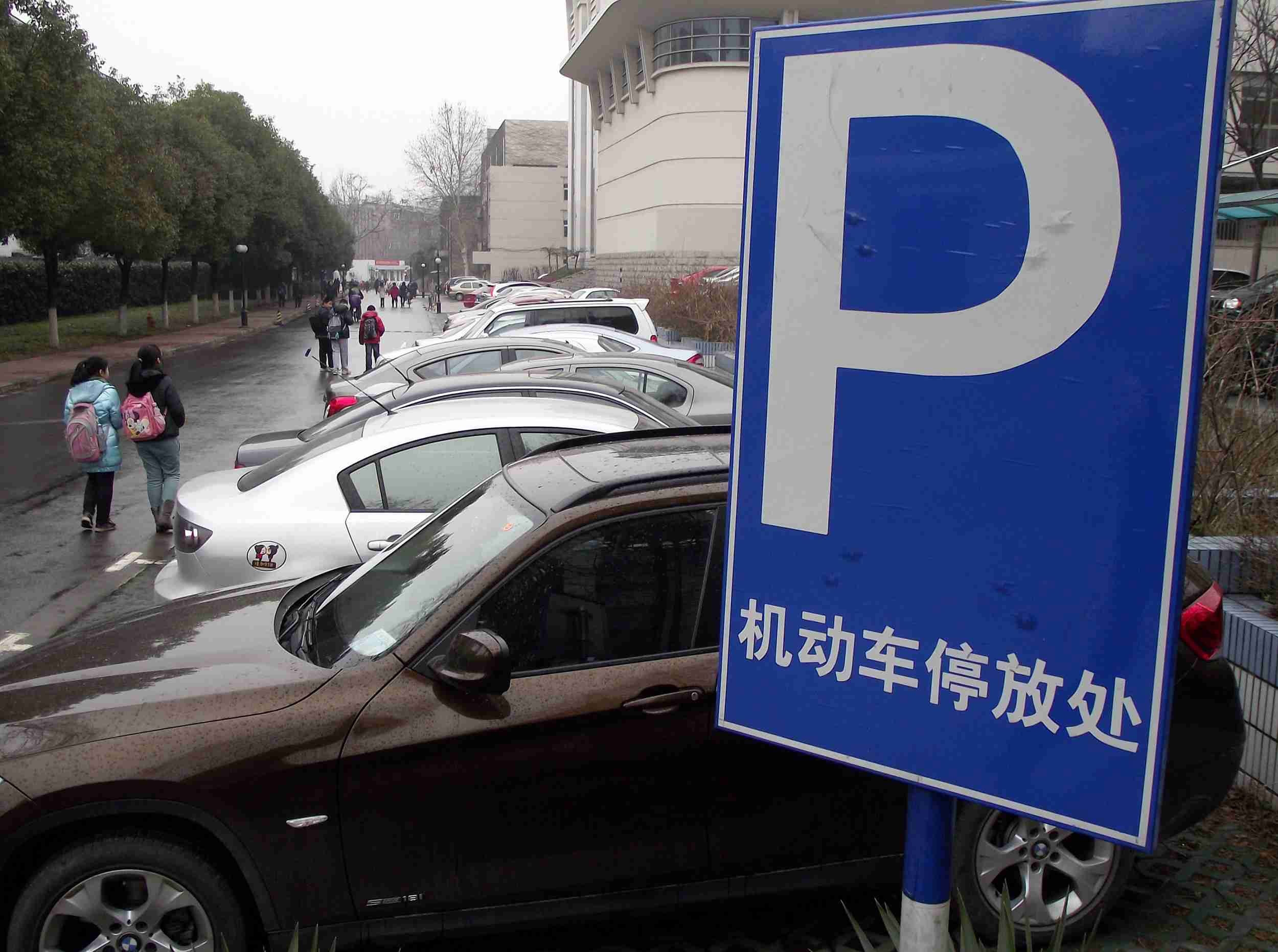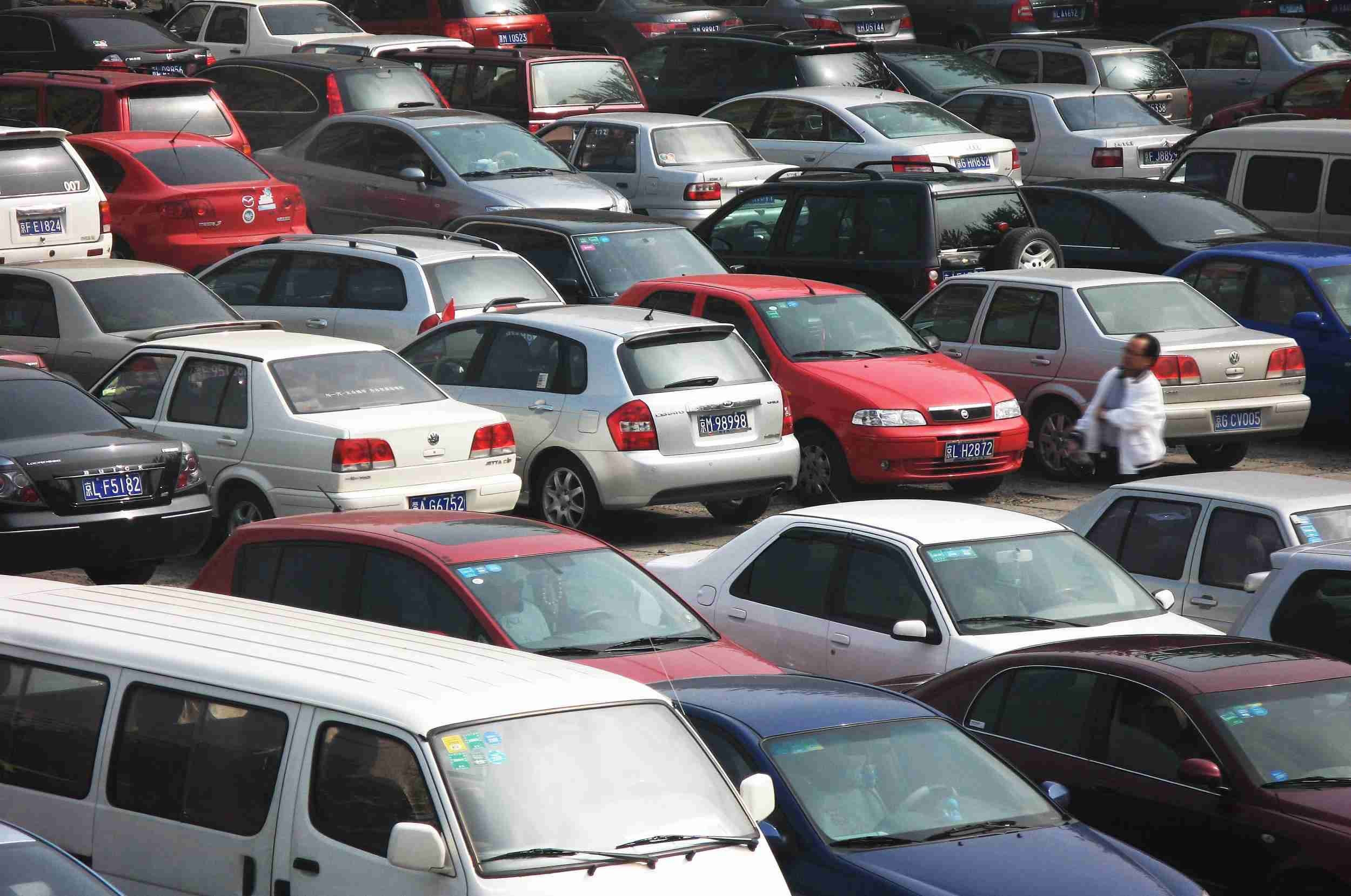A parking lot sharing mobile application is gaining popularity among white-collar workers in Hangzhou, east China's Zhejiang Province, amid China's sharing economy boom.
Searching for parking spaces has long been a headache for many office workers in metropolises across China. Especially for those working in central business districts in first- and second-tier cities, parking near their companies for five days a week could cost them a fortune.
Meanwhile, even with prices for parking lots in residential areas soaring, most of their spaces remain unoccupied during workdays.

Parking lots within a residential area in Nanjing, Jiangsu Province. /VCG Photo
There lies the business opportunity for "Searching for Parking Spaces", or in Chinese "Zhao Che Wei", an application developed by a science and technology company. The company, named "Cloud Butler," has upgraded the barrier gates for the residential areas, to enable them to be linked to its database.
By inputting one's cellphone number, license plates number and periods of time needed, an app user will be able to find a shareable parking space in a residential area close to his or her working place.
A man surnamed Zhang is one of the users who have benefited from using the app. He told local newspaper Qianjiang Evening News that it cost him nearly 1,000 yuan (147 US dollars) every month for parking before using the application, but now, after renting one from his parking-lot landlord, the expense has been lowered to 400 yuan (59 US dollars) per month.
"And it is safer to park the car in a residential block than at the roadside," said Zhang.
According to Li Hongbin, CEO of "Zhao Che Wei", the application has over 6,000 registered users at present, and they are planning to work with 200 residential areas in Hangzhou within the year.

A crowded parking lot in Beijing. /VCG Photo
Li said the revenue will be distributed between the application, property management companies and the owners of the parking lots.
Such applications have also emerged in many other cities across the country, such as Beijing, Shanghai and Chengdu. According to Liu Changjiang, head of the Beijing Parking Industry Association, Beijing is also working on a plan to encourage sharing parking spaces.
About 25 to 30 percent of the parking lots in Beijing are left idle, and by sharing parking spaces, the lack of parking lots will be eased and the utilization rate will also be much elevated, said Xie Guangzheng, an official of Beijing Transport Institute.










